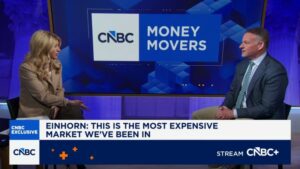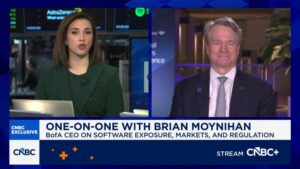Oh, the impulsive buy. Maybe for you, it’s the inflatable pool that showed up in your Instagram feed on a 95-degree day. Or is it the pair of shoes you didn’t know you needed until they beckoned to you from the clearance rack?
Whatever the unplanned purchase is, impulse buying can lead to overspending. Thankfully, with reflection and intention, you can keep impulse shopping in check and .
But first, what is impulse buying?
Impulse buying means you purchase something without planning to do so beforehand. Say you’re at the grocery store. The gallon of milk, which is on your list, isn’t an impulse buy. The candy bar that you throw in your cart on a whim, after spotting it on the shelves in the checkout line, is an impulse buy.
Impulse buying often involves an external trigger, says Carrie Rattle, a New York-based financial therapist and coach. Maybe that trigger is a sale or ad, for example. Or perhaps you simply see the item in the store, on social media or in the hands of your cool friend and suddenly want to have it.
While impulse buying is situational and externally motivated, compulsive shopping is typically habitual and internally driven by uncomfortable emotions. “Compulsive shopping is an ongoing, go-to coping behavior,” says Rattle, who is also CEO of Behavioral Cents and Stopping Overshopping, coaching services for professional women.
If you’re a compulsive shopper, it doesn’t matter if there’s a sale or if you already have that sweater in five colors, she says. You shop to self-soothe.
Although impulse shopping and compulsive shopping are different, “there’s a continuum from one to the other,” Rattle says. “If you’re impulse shopping every day, you definitely want to explore if you’re a compulsive shopper.”
Rattle says compulsive shoppers often wind up going to an extreme. For example, she says, compulsive shoppers may:
If you’re concerned that you’re compulsively spending, research support groups to join or seek out a professional who specializes in overshopping, such as a therapist, financial coach or clinical social worker.
Whether you tend to impulse buy or occasionally shop compulsively, here are a few ways to prevent overspending.
A shopping list won’t just help you remember to pick up eggs. It can also help you be more intentional and less impulsive. “If it’s not on your list, it doesn’t mean you can’t buy it tomorrow — it just means you can’t buy it today,” says Kathleen Burns Kingsbury, a Waitsfield, Vermont-based wealth psychology expert and host of the “Breaking Money Silence” podcast.
Rattle recommends “putting the pause between the urge and action.” For example, maybe you walk a lap around the parking lot before checking out, she says. Or, per Kingsbury’s suggestion, tell yourself you can buy the item tomorrow but not today. (And by tomorrow you may have cooled on the idea.)
While , it can be a little too easy to impulse buy with a couple of taps or clicks. Avoid keeping your payment information on file with retailers. That way, you have to stop and enter your information for every purchase.
Consider when and why you tend to overshop. What were you feeling and experiencing the last few times you bought something impulsively? Write it down. Ideally, you can start to understand your internal and external triggers and how to manage them.
For example, if your last few impulse purchases were made through Instagram ads late at night, maybe you set up restrictions on your phone so you can’t access Instagram after a certain time. (In your phone’s settings, explore the kinds of app limits you can set. Start by checking “Screen Time” on iPhones and “Digital Wellbeing” on Androids.) Also, while you’re limiting online shopping triggers, unsubscribe from tempting retailer emails.
Or say you realize you tend to shop when you’re sad. In that case, Rattle suggests asking yourself what else cheers you up. For instance, rather than wandering into the mall when you’re blue, perhaps you call a friend or walk in nature.
Rattle stresses that this reflection is “not meant to be shameful, and it’s not meant to be judgmental.”
And remember that “there’s no way to be perfect around money,” Kingsbury says. So, as you reflect on past impulse purchases and try to limit them in the future, she says, “be compassionate with yourself.”
This post was originally published on Nerd Wallet







